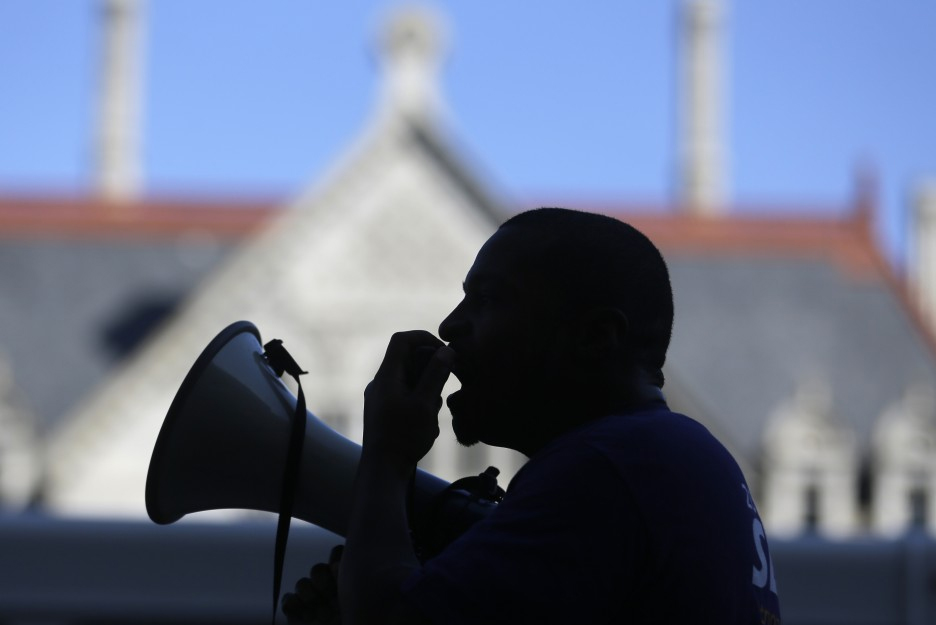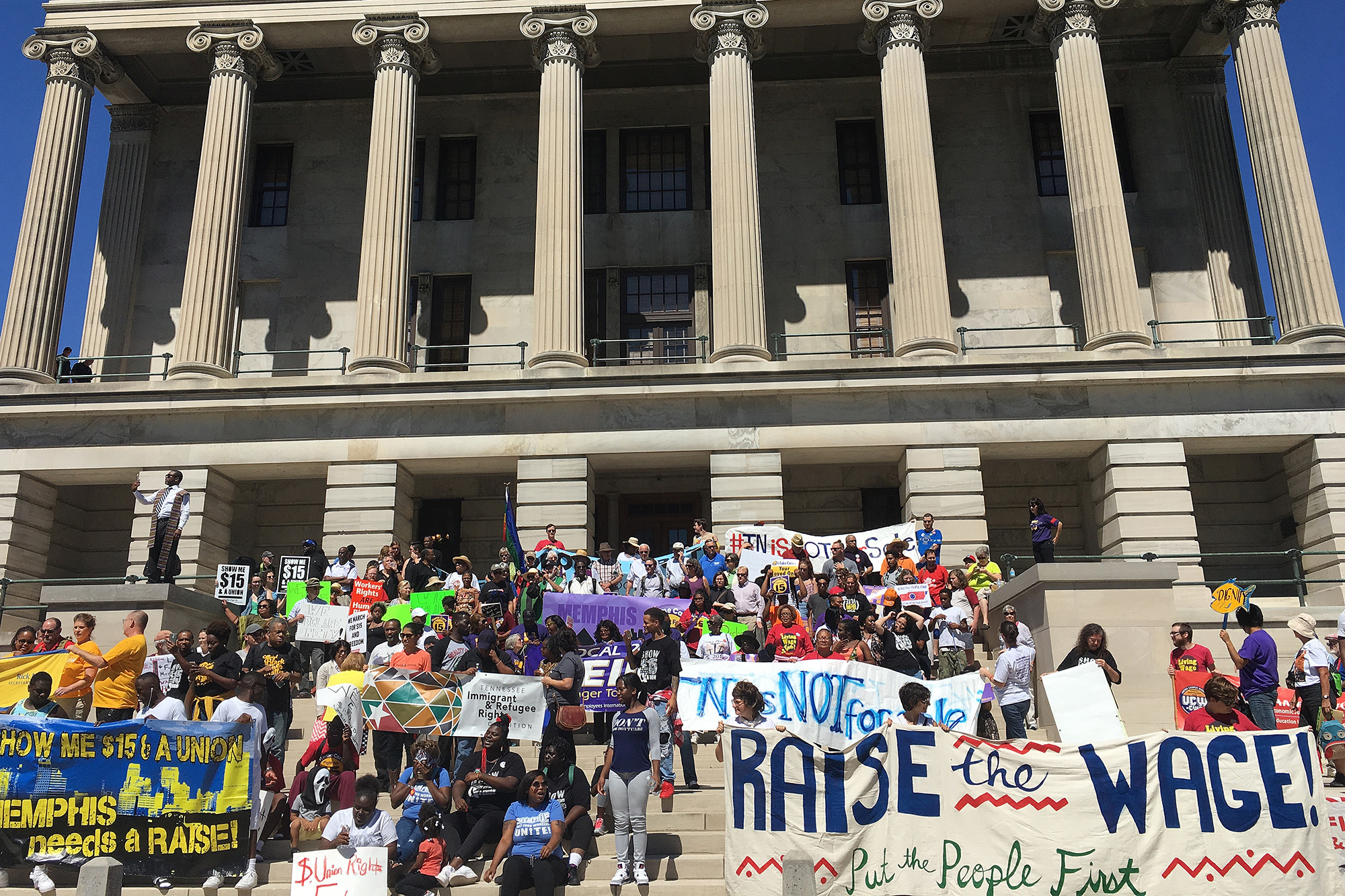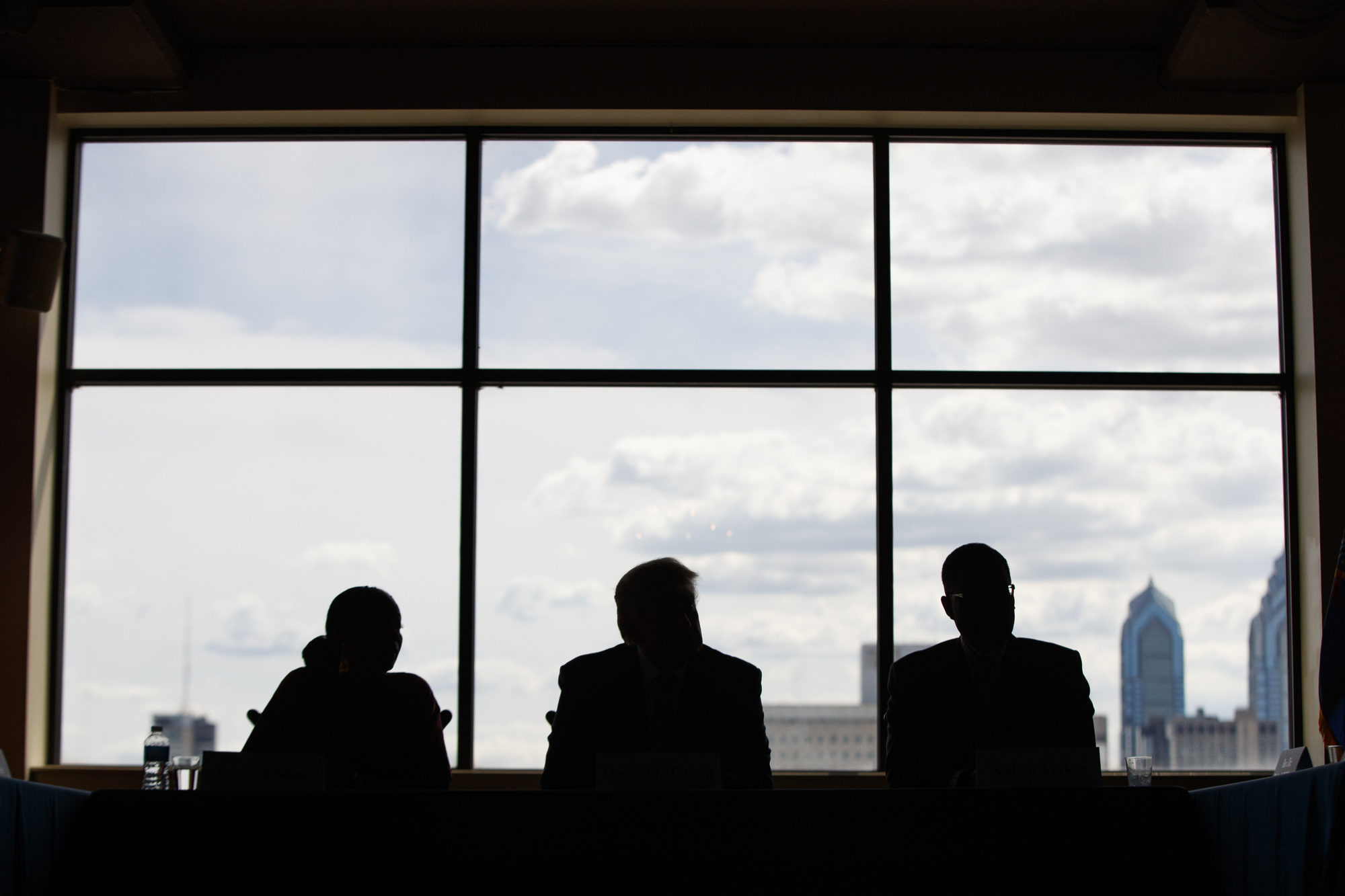Last week’s political news was dominated by the stunning failure of congressional Republicans’ health care bill. The resulting chaos will ultimately preserve health insurance for 24 million Americans, but it allowed the March 22 confirmation hearing for Alexander Acosta, President Trump’s second choice to lead the Labor Department, to slide by unnoticed.
In a party-line vote, the Senate Committee on Health, Education, Labor, and Pensions advanced Acosta’s nomination today, putting 160 million American workers one step closer to having a protector-in-chief whose views are largely unknown. During his hearing, Acosta fought to keep his opinions concealed. He repeatedly dodged questions about the department’s most significant recent activities, including updating overtime rules, reducing exposure to deadly silica dust, and requiring retirement advisers to act in their clients’ best interest.
But, despite his relative silence on labor issues, Acosta’s past has a giant red flag.
Get TalkPoverty In Your Inbox
From 2003 to 2005, when Acosta was leading the Civil Rights Division of George W. Bush’s Department of Justice, the division became intensely politicized. An investigation by the Office of the Inspector General found the division violated federal law and DOJ policy by conducting hiring based on candidates’ political and ideological affiliations. Although the report did not find Acosta directly responsible for illegal behavior, former DOJ employee Kristen Clark wrote, “This egregious conduct played out under Acosta’s watch and the Inspector General found that, despite the special litigation section chief informing Acosta of the wrongdoing, Acosta failed to take sufficient action to address the illegal and unprofessional actions.”
Acosta’s worrisome record doesn’t end with turning a blind eye to illegal activity. During his tenure at DOJ, Acosta himself was accused of partisan meddling. Just days before the 2004 presidential election, Ohio Republicans challenged and purged the voter registration of thousands of mostly African-American voters through a practice known as “voter caging.” When the case was challenged in federal court, Acosta took the unusual step of sending a letter to the court claiming that the purge was allowed under the Voting Rights Act. Typically, federal agency chiefs go out of their way not to influence elections—but if this behavior sounds like déjà vu, you can thank FBI Director James Comey.
In other words, when the interests of the Bush administration—which favored restrictions on voting rights—conflicted with his responsibility as a civil rights chief, it appears Acosta chose to use his authority to push the administration’s agenda.
And if he is confirmed as labor secretary, Acosta will once again be tasked with protecting a marginalized group of Americans—workers. One of his first tasks will be deciding whether he will enforce a spate of new rules that are designed to protect workers, passed during the end of the Obama administration. The rules themselves are straightforward: companies would have to disclose worker exposure to a cancer-causing dust often found in construction, federal contractors would have to disclose labor law violations, and employers would have to pay overtime to additional eligible workers. But in some cases, Trump has already criticized them.
If his previous actions are any guide, Acosta will likely place partisan loyalty above enforcement of his agency’s mission. And when he repeated during last week’s hearing that he’d defer to Trump as the “boss,” he gave little assurance that he won’t place ideology above the labor rights and civil rights of working Americans.












